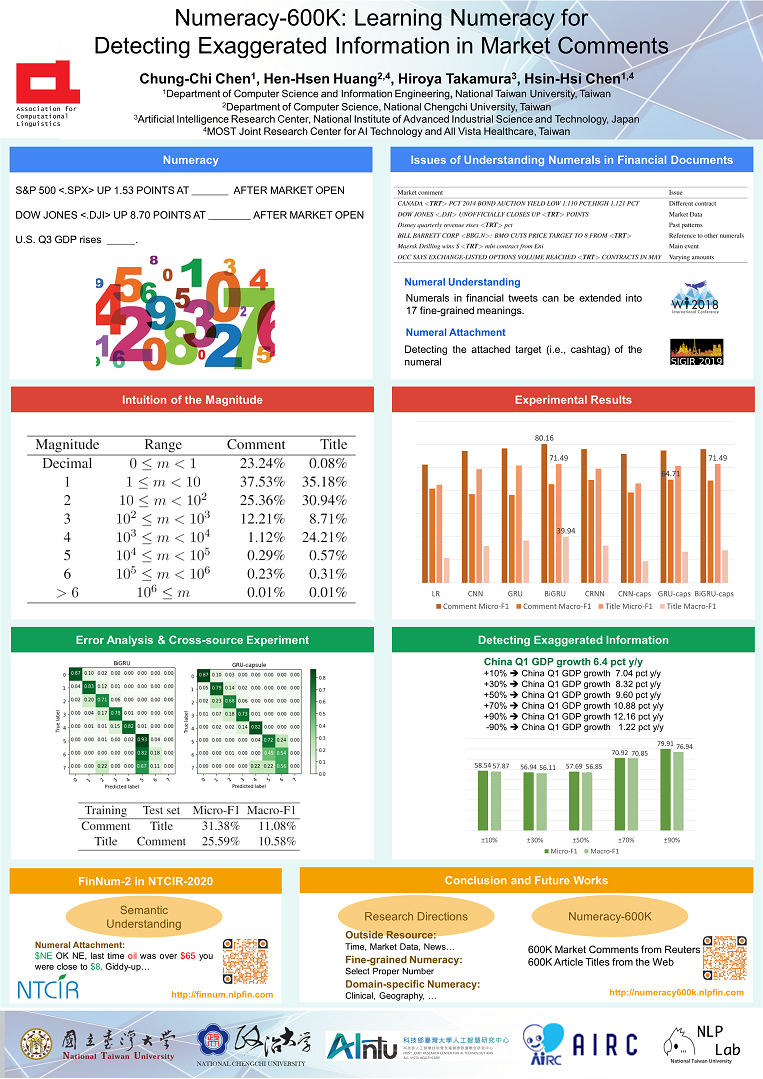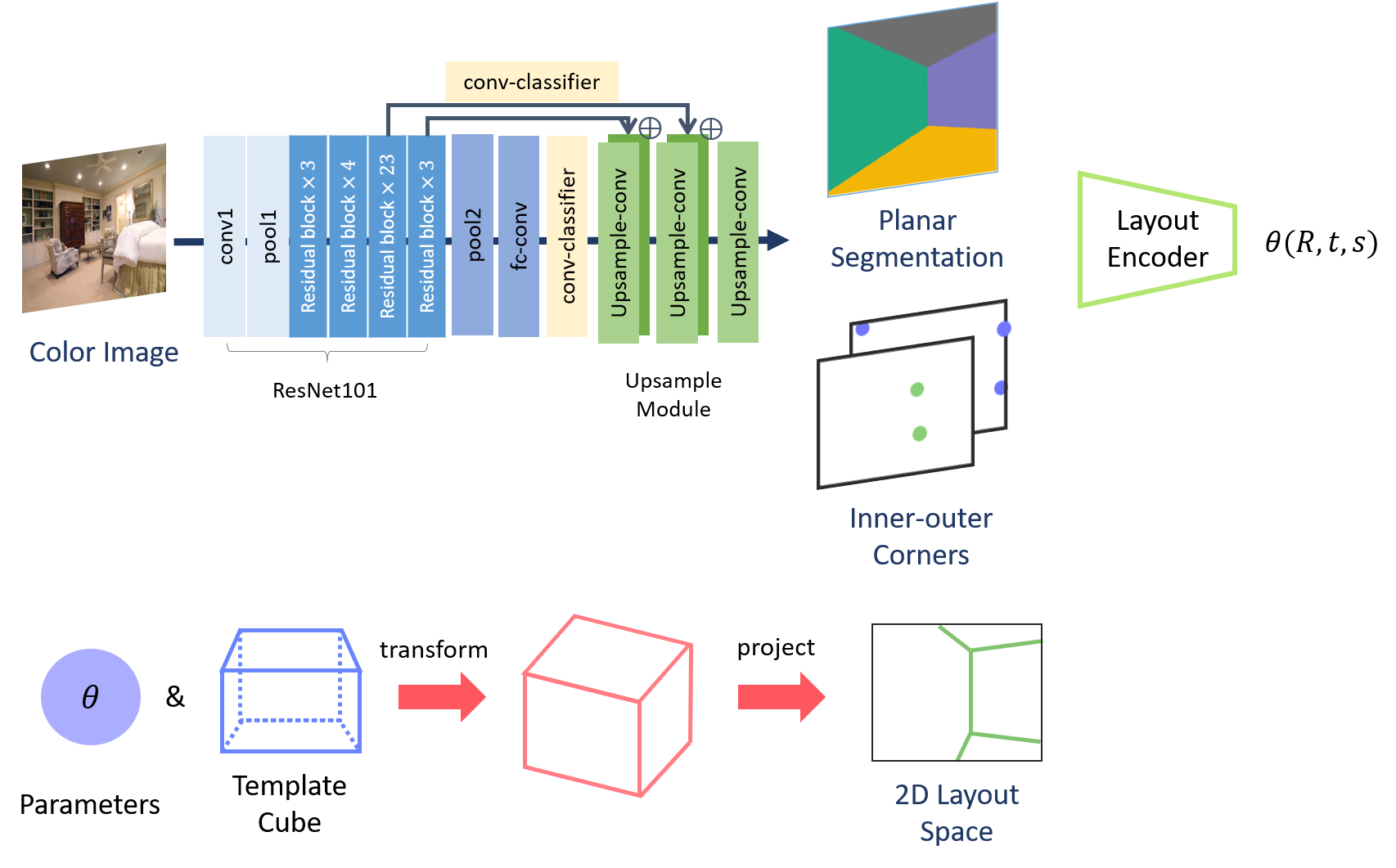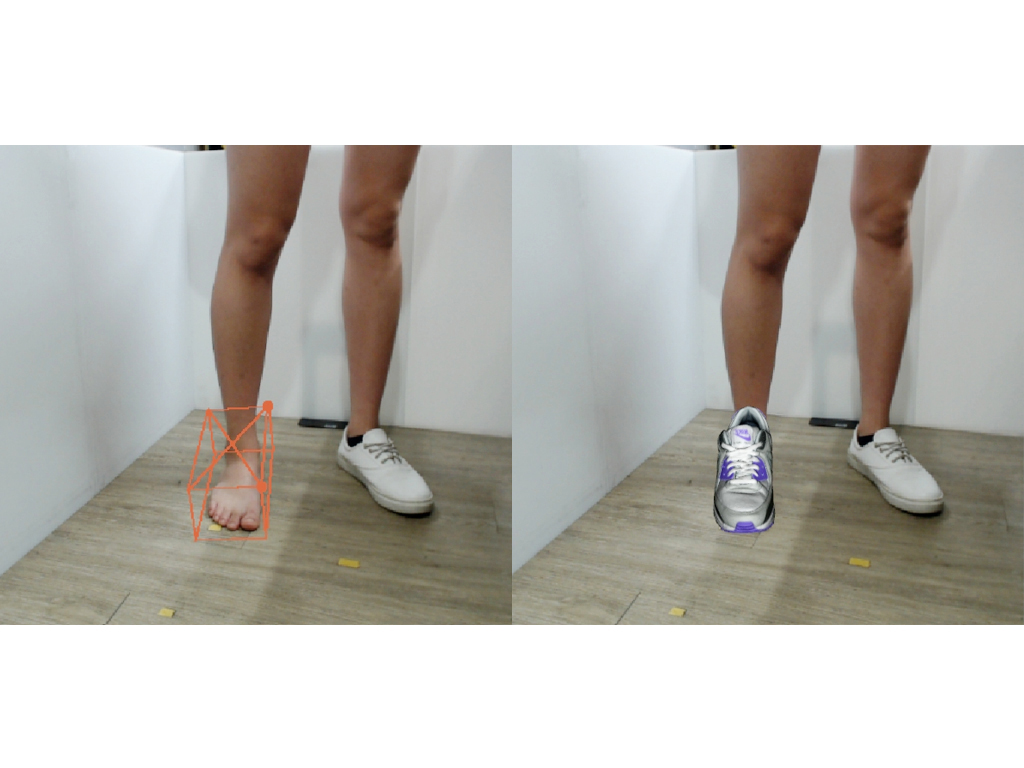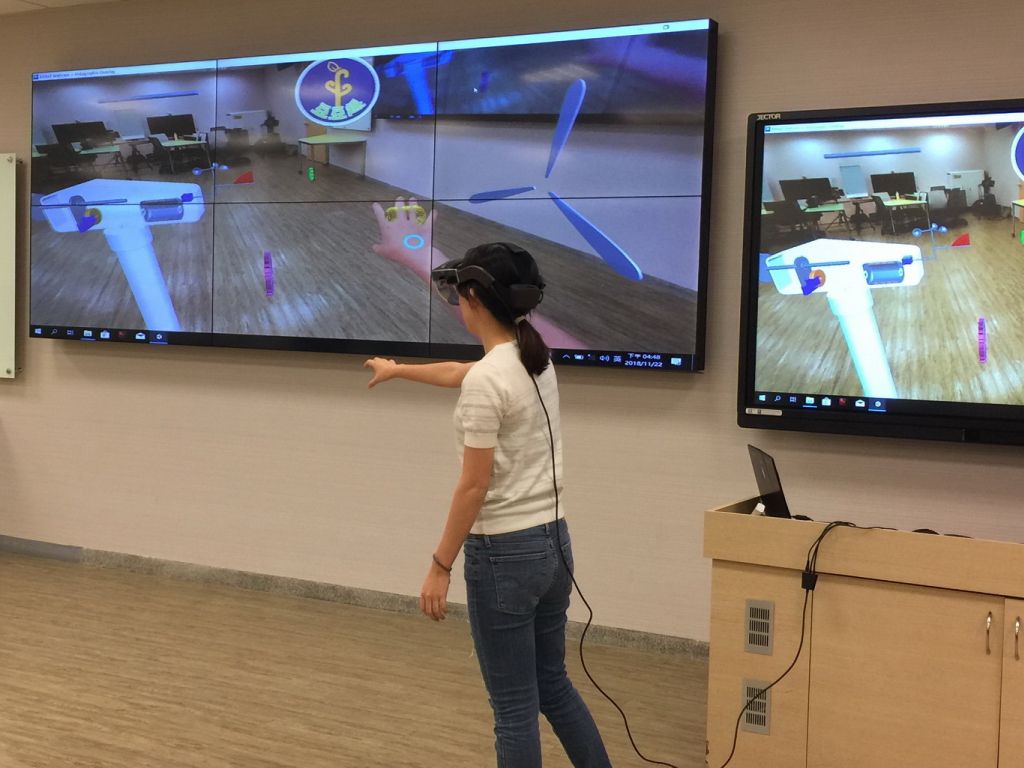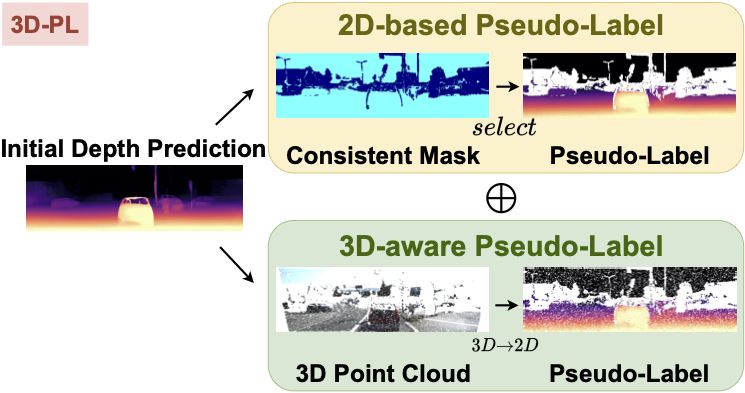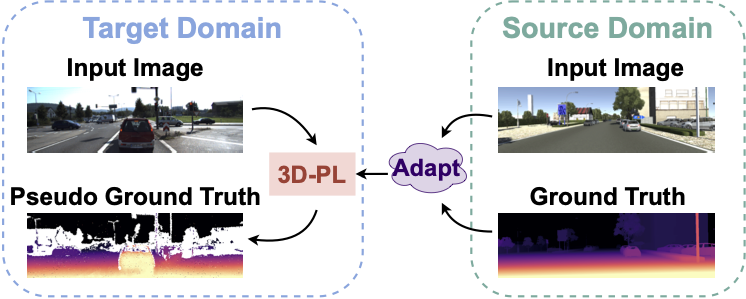| Technical Name | 3D-PL: Domain Adaptive Depth Estimation with 3D-aware Pseudo-Labeling | ||
|---|---|---|---|
| Project Operator | National Yang Ming Chiao Tung University | ||
| Project Host | 彭文孝 | ||
| Summary | Due to the difficulty of acquiring ground truths for real data in the task of monocular depth estimation (i.e. paired real imagesdepth maps), we introduce a domain adaptation method with the attempts to adopt supervised synthetic data (which is almost free to obtain) for improving the training of depth estimation model on the unsupervised real data. We propose 2D-based3D-aware pseudo-labeling mechanisms, which utilize knowledge from synthetic domain as well as 3D structural information to generate reliable pseudo depth labels for real data. Extensive experiments show that our pseudo-labeling strategies are able to improve depth estimation against several state-of-the-art domain adaptation approacheshave good generalizability. |
||
| Scientific Breakthrough | We propose a framework for domain adaptive monocular depth estimation via pseudo-labeling, consisting of 2D-based3D-aware strategies that are complementary to each other. We utilize the 2D consistency upon depth predictions for two real images (which have the same content but different appearance/styles) to obtain initial 2D-based pseudo-labels,then propose a 3D-aware method that adopts point cloud completion in the structural 3D space to refineexpand pseudo-labels. We show that both of our 2D-based3D-aware methods have advantages against existing methods on several datasets,when having stereo pairs during training, the performance can be further improved. |
||
| Industrial Applicability | Depth perception is essential for a wide range of applications, including autonomous driving, robotics,augmented reality, thus how to acquire the depth estimate for providing 3D structurericher geometric information becomes a fundamental research problem in computer vision. Hence, if we are able to learn a (monocular) depth estimation model without requiring to manually annotate groundtruth for the large-scale training dataset, it will largely benefit the applicabilityflexibility of learning depth perception thus directly contributing to all the industries which use visual recognition/sensing techniques in their developmentbusiness. |
||
| Keyword | Depth Estimation Domain Adaption Pseudo-Labeling | ||
- walon@cs.nctu.edu.tw
other people also saw

